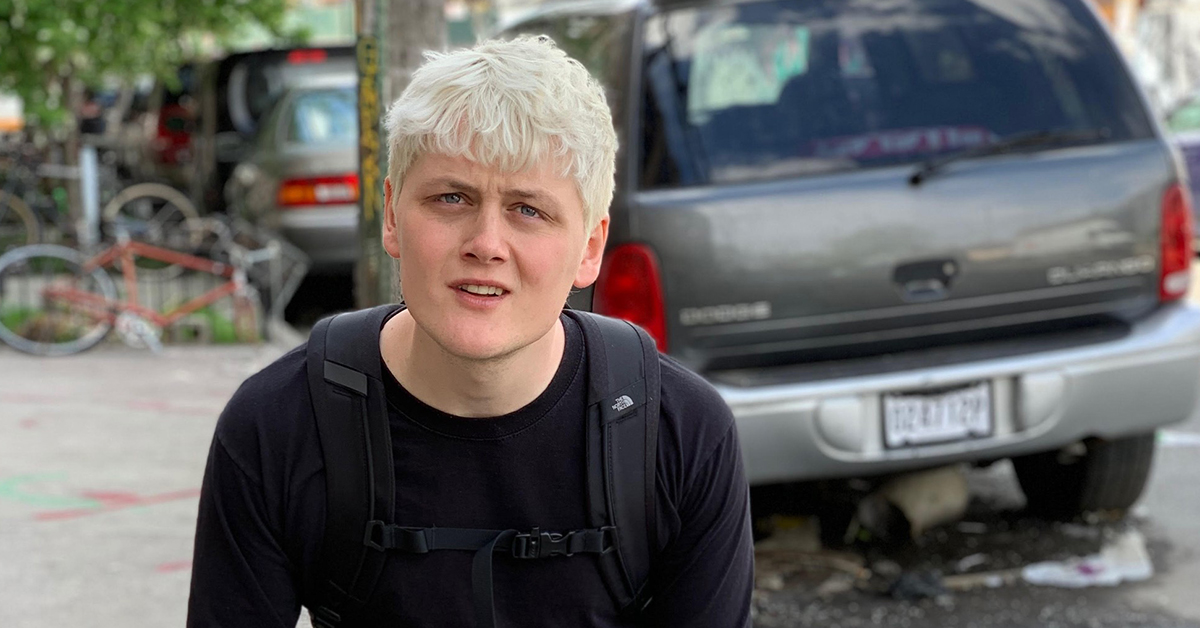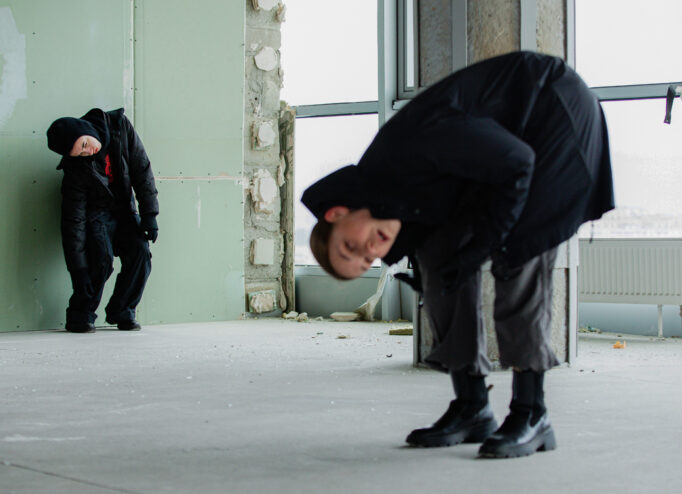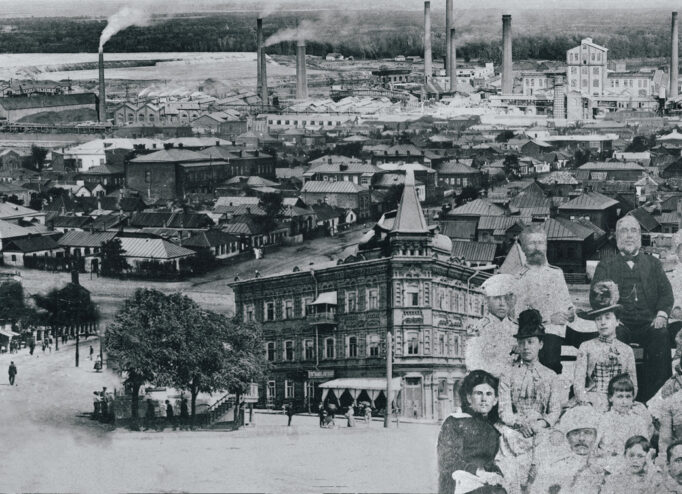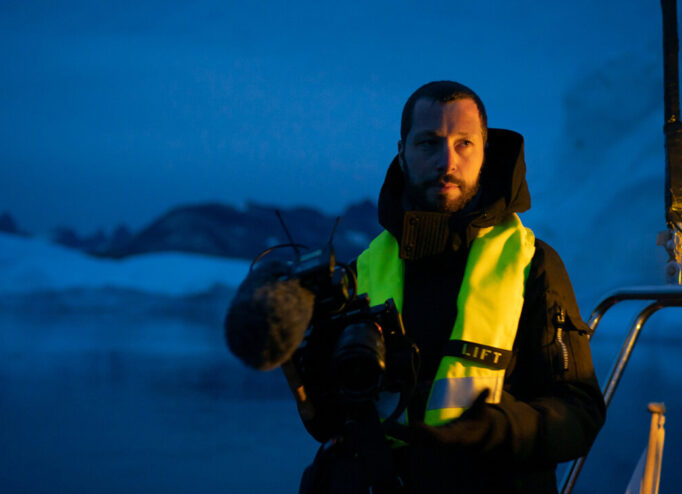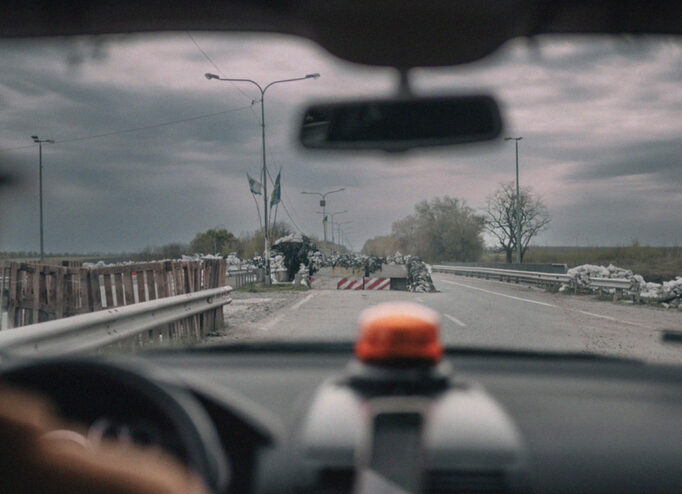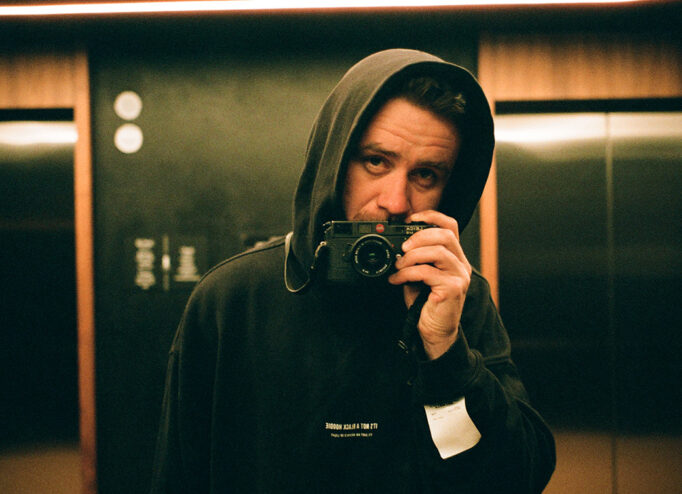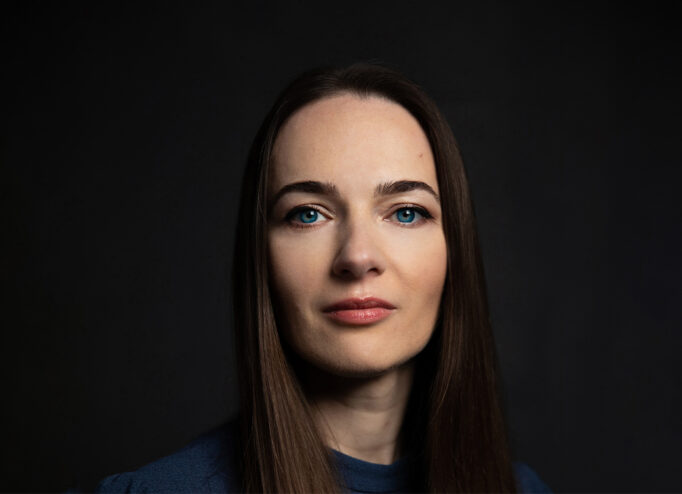Today the name Oobah Butler is probably unfamiliar only to those who are unfamiliar with the Internet. Last year, VICE published a story by a British journalist about how he invented a restaurant that topped TripAdvisor’s rankings. That experiment earned him worldwide popularity, which also caught up with Oobah’s next journalistic experiences such as presenting a fake brand at Paris Fashion Week, sending his doppelgangers to various shows around the world, desecrating ancient British laws, and others.
It seems that humor and relevance of ideas doom all the projects of the prankster, including his latest book «How To Bullsh*t Your Way To Number 1». Butler admits in this book that this was not always the case, and tells how he managed to succeed from scratch.
DTF Magazine got through to Oobah, after weeks of trying to reach Butler, who is hard to catch during his world tour in support of the book, and asked him about his previous projects, social phenomena, routines and lies
— Where are you now? What are you doing?
— I’m working on new projects in London. Something’s coming up, but I won’t say a word about it!
— Why did you choose the path of shenanigans and funny fakes over insightful journalism at one point?
— I’m just not a very serious person. I tried to be more serious when I first started writing, but then I realized a couple of things. First, I get more pleasure out of fooling around. Second, the people around me also like it when I fool around. And I realized that I was going to do everything based on that now.
All in all, it took me a long time to figure out what it was that I was doing. It wasn’t like I walked out the door and decided to do something specific in an instant — everything evolved in an incremental way.
— Whose work inspired you three years ago and what inspires you now?
— I won’t say exactly about that time, but I really love comedian John Oliver, he does some very interesting experiments. And I like Andy Kaufman, for example. I used to watch «Jackass» and something else along those lines when I was very young. I like the weird stuff that German artist Christian Jankowski does. A lot of things inspire me, actually.

— Why do you think funny stories are as much in demand in journalism as articles on pressing current affairs today? Why do jokes attract the same tremendous attention now?
— I think funny news stories and humor in general are great tools for engaging people because they activate other parts of the brain. The world is such a mess, so it can often be hard to cut through the information noise. And humor is a gentle, disarming way to connect with people when you want to not only say something to the audience, but also entertain them.
— How important is it to you to involve ordinary unbiased people in your stories?
— It’s really great to get them involved: you make something up around normal people and then you watch them react in a completely organic way. And that’s especially curious. I’m not interested in provoking them to do certain things, pushing them into predictable reactions. It’s much more fun to allow them to behave naturally in a given environment, to play an active role in what’s going on. After all, this isn’t really about me — it’s about everyone.
— What is the key to a successful drawing? What conditions must be met? And what factors ensure the success of the story with the audience in the end?
— You have to make sure that what you have in mind is relevant and reflects what is happening in the world at the moment. You need to make sure that the idea is unique and that no one has done this before you. And honesty in action is also important, especially if the project involves working with misconceptions, as was the case with the restaurant Shed in Dulwich.
In addition, it is important that the story satisfies interest on several levels. For example, it should be liked because people think it’s clever as well as because it’s simply fun. The plot must be multi-layered in order for something real to come out of it as a result.
— Name your favorite projects.
— I probably have three of them. First of all, it’s a story about a fake restaurant. He became a real game changer, everything changed for me after that.
I liked the story of Georgio Peviani because it benefited the real man behind the brand: he successfully sells his clothes all over the world now. What’s interesting here is that the story got a continuation beyond the experiment with a happy ending.
The first story played an important role. People paid attention to me because of it, in fact. I wondered if the market demand for music CDs could be revived using the sales method of Jehovah’s Witnesses in the digital age. They go door to door to «sell» religion personally, and this method has not failed them to this day. The result is something like the «Music vs. God» project.
— What was the worst or strangest work experience in your memory?
— I worked in a bar, in a factory, and I worked part-time as a copywriter… I won’t define the worst experience, but the weirdest experience was when I designed a cheap sex robot. It was a completely wild idea to build a sex robot for 20 euros or so.
— Did you feel like a super engineer who saves the needy who can’t afford a fancy sex robot back then?
— Exactly! Of course, one available sexbot won’t save the world, but you have to start somewhere.

— How do you usually start working on a project? You get an idea, you go to VICE, you say you want to do this and that, the editorial board approves the project, and you get started, right?
— I have been implementing ideas on my own for a long time. These were Shed in Dulwich, for example. And VICE was looking at already finished material. The magazine began to join in the starting stages of some projects later. I always did «small-sized» projects on my own, when one moment I had an idea, and the next moment I could realize it and come to the editorial office with a finished work in a week.
It always depends on the essence of projects, really, because they usually emerge from your own life experience: you can’t just pile up some information and assemble material from it, which is based on a social experiment. I feel this especially now, because I spend a lot of time outside of London and I’m constantly moving around the world. I tend to need time to go somewhere, to be in certain environments, and to interact with people. I need real experiences to do what I usually do, not just the idea of it.
— You launched the Oobah.com service of providing doppelgangers to other people for different purposes after the story of the doppelgangers you sent to replace you at various shows and events. Can you name the top 3 requests for the service?
— I liked the guy who requested a double to break up with his fiancee instead.I also liked the guy who requested a doppelganger to take an algebra exam for his high school graduation. And I liked the doppelganger’s request to meet the boyfriend’s parents to make a better impression on them. These are the leaders so far.
— And would you really send doubles on these missions? Or would you even go yourself?
— Yes, I am seriously thinking about it. Of course, it’s not certain that I can do it myself: there has to be some resemblance to the client, after all. But if there’s a guy with white hair who looks like an alien freak among them, I’ll go for it.
— What surprised you the most while working on any project?
— Perhaps this is a boring and predictable answer, but I was shocked when people started rebooking tables at the fake restaurant to come back and taste my excellent food again in a damp yard in the November cold. I couldn’t understand it.
I was surprised when Australian television didn’t notice that it wasn’t me who was on the show. After all, the same journalists had seen me in the same studio earlier! But they never realized that it wasn’t me in front of them. The jumpsuit had short-circuited my brain; it became an undisclosed distraction. It was truly curious to watch.
— Have you ever had such crazy ideas that you hesitated to carry them out?
— Yes, it was more than one idea. I remember when a pigeon was arrested in India. I wanted to take that case to court, to find out if pigeons were evil or not? And I tried to imagine what that trial would be like with a pigeon on the bench, with the jury and all the people in the courtroom. The idea was completely ridiculous and nothing came of it, thank God. There were a lot of crazy ideas that I would come up with, but the process of working on them dragged on and they turned into something else entirely.
— Your book «How To Bullsh*t Your Way To Number 1: An Unorthodox Guide To 21st Century Success» recently came out. Why did you write it and why would I be interested in reading it?
— Young people from all over the world constantly asked my advice on how to follow my example and succeed on nothing. So I decided to talk about it at length in the book.For as long as I can remember, everything I undertook was doomed to failure. I get to the answer to the question of why I was suddenly successful given such a set of circumstances, and I tell it in the book.
It is interesting to read at least for that reason. In addition, the book is easy to read — there are only 80 pages in simple and understandable language. It is already the № 1 bestselling comedy book in the United States, according to USA Today.
— VICE published an excerpt from a book where you talk about how everyone around you is actually lying incessantly to one degree or another, and how you have been using lying to achieve something since you were five years old. And your talent is finally beginning to pay off judging by the success of your book
— Yes! I’ve always been full of shit and the book really lays out what the title says: how to bullsh*t your way to the top. That’s the main reason it’s worth reading.
— What discoveries or insights about contemporary society have you come to in the course of your work in recent years?
— I realized that I shouldn’t fall for any nonsense! But seriously speaking, there were many discoveries. First of all, I realized that people still love and appreciate a good story. I realized that we live in an age where people have minimal opportunities and minimal money, but they can make those stories happen, they can travel, they can launch a fake business in two minutes — they just have to mark its presence on the Internet and then handle it properly.I realized that we live in a golden age of nonsense, and the world is full of blabbermouths who can say this nonsense quite freely. It’s a kind of sign of democracy, and that’s a good thing.
— You’ve been called the «Banksy of journalism». Do you agree with that comparison? Is there any other way you can label your journalistic style?
— I wouldn’t call myself «Banksy of journalism». Although he creates images of phenomena that become more appealing than the phenomena themselves — you can probably see some parallel between us here. I’ve also been called «the Donald Trump of TripAdvisor», and I didn’t like that. I’d say I’m a «dodgy knave of art».
— Does your work resonate with the legacy of the British music group The KLF? Bill Drummond and Jimmy Cauty are known for their crazy antics like burning a million pounds on a desert island and other acts of art that simultaneously shocked, amused and opened eyes to some social phenomena of their time.
— Yeah, I definitely like what The KLF has been doing. And I’m excited about their current project: they’re building a pyramid out of their fans’ ashes and not just ashes in England. They take a batch of ashes from people’s cremated remains, put them in bricks, and build a pyramid out of the bricks, and they get paid for each brick. It’s total bullshit.
And it was just crazy when they burned a million pounds! How is that even possible? I guess the process itself feels like something awesome, but then you look at it from the outside, and you already find it completely horrible and even kind of gross in a way. It is a peculiar act of art, for which the shock effect was necessary to mark the position.
— What question would you ask yourself and how would you answer it if you were interviewing yourself?
— I would ask myself how much I make. The answer is «Not enough!». I was recently asked this for the first time in the United States. It’s a very American question. It’s an unexpected and strange question for me as an Englishman. We don’t talk about earnings, but everyone is obsessed with the question of social class in England.
— What would you like to say that you’re not asked about?
— I want to thank my family for their support. They were understanding of my wacky lifestyle and didn’t deny me the opportunity to fool around when I was a kid. And I’d like to tell my high school teacher to fuck off! He was a real piece of shit, just the kind of person who is obsessed with class distinctions. I don’t wish him any harm at all, but I would willingly send him to hell.
— What do you read, listen to, watch in your normal life?
— I read a lot of journalism. I recently finished Luke Harding’s book about life in modern London. Now I’m reading Oliver Bullough’s book «Moneyland» about kleptocracy. By the way, the last book also talks about Ukraine. I listen to a lot of podcasts, particularly Fresh Air on NPR, they’re excellent. And tons of music, I’m listening to Eagleowl, for example, right now.
— What would you do if you weren’t writing and telling stories?
— Maybe I would work in a call center where I could sit and talk to people all day long. And I could be a great enthusiastic cult member.
— What professional goals or dreams are you pursuing?
— It would be great to create a completed full-length work. Let’s say it would be great to collect everything I’ve done and integrate it into one big massive project that gives a complete picture of what’s going on and who I am. And I just want to make people laugh. I hope that my activities remain relevant and funny. In fact, it would be very rewarding. And I hope that my work would get better, not worse. Or I’d like to be Prime Minister of Great Britain — that would be nice too!
— And what would you do as prime minister?
— I would legislate a ban on frowning on the subway. And I would make all public transportation free.
— What future do you foresee for the media?
— There will be robots. You and I will be out of a job, and the robots will be programmed by computers and will interview football players.
Читайте также:
- Журналист-пранкер Уба Батлер едет в Киев: Что о нем нужно знать
- Главный дизайнер Vans: «Я никогда не думал о спасении бренда»
- Что нужно знать о фотографе Атибе Джефферсоне, который едет в Киев
- Сооснователь Highsnobiety: «Уже не обязательно быть мейнстримом, чтобы найти максимум единомышленников»
- Легенда стрит-фотографії презентує свою виставку в Києві на DTF Conference
- В Киеве покажут фильмы Джоны Хилла и JR в рамках DTF CONFERENCE
